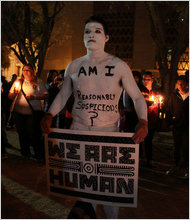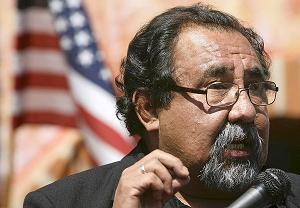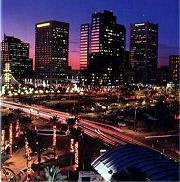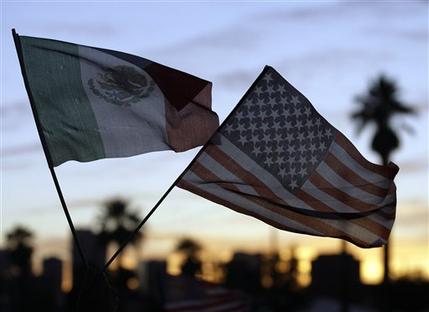PHOENIX Thousands of people from around the country marched to the Arizona state Capitol on Saturday to protest the state’s tough new crackdown on illegal immigration.Opponents of the law suspended their boycott against Arizona and bused in protesters from around the country. Organizers said the demonstration could bring in as many as 50,000 people.Midtown Phoenix buzzed with protesters carrying signs and American flags. Dozens of police officers were on standby along the route of the five-mile march, and helicopters hovered overhead.
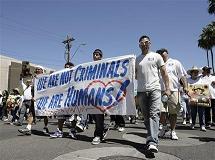 Protesters braved temperatures that were forecast to reach 95 degrees by mid-afternoon. Some used umbrellas or cardboard signs to protect their faces from the sun. Volunteers handed out water bottles from the beds of pickup trucks, and organizers set up three water stations along the route.Supporters of the law expect to draw thousands to a rally of their own Saturday evening at a baseball stadium in suburban Tempe, encouraging like-minded Americans to “buycott” Arizona by planning vacations in the state.
Protesters braved temperatures that were forecast to reach 95 degrees by mid-afternoon. Some used umbrellas or cardboard signs to protect their faces from the sun. Volunteers handed out water bottles from the beds of pickup trucks, and organizers set up three water stations along the route.Supporters of the law expect to draw thousands to a rally of their own Saturday evening at a baseball stadium in suburban Tempe, encouraging like-minded Americans to “buycott” Arizona by planning vacations in the state.
Critics of the law, set to take effect July 29, say it unfairly targets Hispanics and could lead to racial profiling. Its supporters say Arizona is trying to enforce immigration laws because the federal government has failed to do so.The law requires that police conducting traffic stops or questioning people about possible legal violations ask them about their immigration status if there is “reasonable suspicion” that they’re in the country illegally.
Supporters of the law insist racial profiling will not be tolerated, but civil rights leaders worry that officers will still rely on assumptions that illegal immigrants are Hispanic.Luis Jimenez, a 33-year-old college professor who lives in South Hadley, Mass., said the law will force police officers to spend much of their time on immigration violations instead of patrolling neighborhoods or dealing with violent crime.
The law also makes it a state crime to be in the country illegally or to impede traffic while hiring day laborers, regardless of the worker’s immigration status.”You’re saying to the cop: ‘Go pick up that day laborer. Don’t worry about that guy committing crimes,'” said Jimenez, a naturalized citizen from Mexico who grew up in Phoenix.
Alfonso Martinez, a 38-year-old Phoenix carpenter and father of three children who are American citizens, said he’s been living illegally in the United States for 21 years while trying to get legal status.”If they stop me and they find my status, who’s going to feed my kids? Who’s going to keep working hard for them?” he said, keeping a careful eye on his 6-year-old daughter as his wife pushed their 4-year-old girl in a stroller. Their 13-year-old son walked ahead of them.
Some opponents of the law have encouraged people to cancel conventions in the state and avoid doing business with Arizona-based companies, hoping the economic pressure forces lawmakers to repeal the law.But Alfredo Gutierrez, chairman of the boycott committee of Hispanic civil rights group Somos America, said the boycott doesn’t apply to people coming to resist the law. Opponents said they secured warehouse space for people to sleep on cots instead of staying in hotels.
“The point was to be here for this march to show support for these folks, then we’re out,” said Jose Vargas, a union representative for New York City teachers. “We’re not spending a dime here.”Supporters of the law sought to counteract the economic damage of boycotts by bringing supporters into the state.”Arizona, we feel, is America’s Alamo in the fight against illegal and dangerous entry into the United States,” said Gina Loudon of St. Louis, who is organizing the “buycott.”
“Our border guards and all of Arizona law enforcement are the undermanned, under-gunned, taxed-to-the-limit front-line defenders trying to hold back the invasion,” she said.In San Francisco, groups planned to protest at the Arizona Diamondbacks’ game against the Giants Saturday night. (AP)

